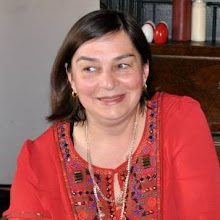It was hard to miss all the recommendations for Sally
Rooney’s debut novel Conversations with
Friends in the end-of-year articles listing the best releases of the year.
As I have a liking for Irish writing and a Dublin setting I bought it as part
of my Christmas holiday reading. I wasn’t disappointed.
Rooney has a distinctive voice that carries the reader
along as if we’re listening to the first person narrator chatting us through
her life day-by-day. I was quickly drawn in, as if listening to a friend
revealing all, but the simplicity of the style is scattered with striking
metaphors and some beautifully worded sentences that made me wonder if Rooney,
like her main character Frances, is also a poet.
Frances is 21 and still close to her best female friend
from school, the noncomformist Bobbi, who was also her first love and her
greatest influence. Bobbi ended their relationship for reasons unknown until
the end of the novel, but they still perform poetry together and are fairly
inseparable. Frances admires Bobbi and is clearly still in love with her.
When the literary journalist Melissa comes into their
life to photograph them and write an article, they get invited to her house and
to events where she introduces them to her handsome actor husband Nick and
important people in the literary world. This will help Frances get published,
but should she, as her new attempt at fiction is clearly autobiographical and
characters are recognisable.
If this makes it sound as if it’s a novel about writers,
not the most welcome theme, then don’t be misled. Instead Frances takes us
through a year of complex relationships, where she and Melissa are
bisexual, Bobbi is lesbian and Nick is heterosexual. As
this leads to affairs with all the usual jealousies, self-questioning,
judgmental attitudes of others and lowering of self-esteem after the initial ‘falling
in love’, the reader is left questioning why marriage survives and whether
monogamy is conditioning rather than instinct.
Frances falls in love with a man for the first time while
retaining her love for Bobbi, and has to ask herself why she would expect faithfulness
from another when she can love and desire two people. Bobbi can’t understand
why anyone would get married any more as she sees it as an institution to
protect the patriarchy and the lack of doubt over paternity. She no longer
wants to be called a girlfriend and prefers to be called a friend. Monogamy isn’t
important to her and she feels love can be for more than one person, just as
parents can love their children equally. In one of the conversations with
friends, their more conventional social circle disagree.
When Frances decides to stop analysing and to experience
instead, realising that some things can only be understood by living them, it
seems ironic as the whole novel is in a voice that ‘over-thinks’ and analyses
every situation. Frances even over-analyses step-by-step through the sex scenes
so it’s hard to know whether she really enjoys them as much as she says. She’s
an analytical mind, but it’s somehow both enjoyable and stressful being in
there with her. She displays all the joy and angst of university-age women. It’s
certainly a different way to write about sex.
While all of this is going on, Frances is also managing
to spend much of her time in the university library getting on with her degree,
and working as an intern in a literary agency, although she has no ambition for
any career. A quip about how her course (English literature) will lead to her
being able to write in a way that nobody can understand made me chuckle aloud,
and Rooney weaves academic English into the novel here and there as that’s how
Frances and her friends would be thinking but it’s like a foreign language to
most people. Philosophers and literary theorists are named and quoted as part
of her stream of consciousness, but there’s no need to look them up.
The visits to Frances’s divorced parents are also well
depicted, with her father still going through the mood swings and alcoholism
she remembers from her childhood. Her mother is more capable but perhaps an
enabler, expecting Frances to carry on humouring her father, while he fails to
provide the money she needs and goes out of contact so it’s hard to know if he’s
suicidal or even still alive. It’s easy to see why Frances has developed a
protective barrier against the outside world and emotion, and why her
self-esteem is so low despite her academic and creative talents.
This backstory is contained seamlessly within the
narrative, so that the reader can see why Frances is attracted to the beautiful
home and the almost parental figures of Melissa and Nick (and has the
self-awareness to ponder this herself).
Melissa also questions her right, or lack of it, to be
upset if her husband is unfaithful, when she herself has had affairs, while
Bobbie would no doubt question terms such as ‘unfaithful’ and ‘affairs’. It all
reminds me of an evolved version of the 1970s when we questioned how much our
behaviour was due to conditioning and whether we needed to break away from much
that we took for granted.
There’s a new earnestness, or maybe that was also there in
the 1970s. Bobbie is angry if any emotional blackmail games are played, or if
she feels she’s being used to make another jealous, even if it’s only with a
smile and whispering in the ear to feign closeness in front of a new lover
losing interest. Lack of honesty and openness is also met with anger and temporary
‘unfriending’, because after all, in polyamory honesty is important. Deceit is
the trademark of old-fashioned values and ‘cheating’ on spouses. But can
Frances manage a new kind of relationship, or set of relationships? The novel
leaves us to work that one out for ourselves.









